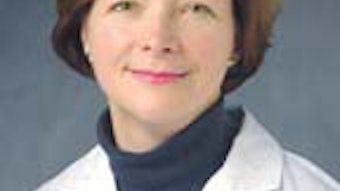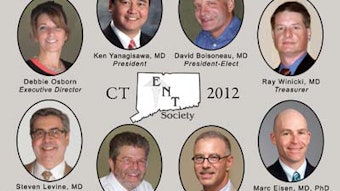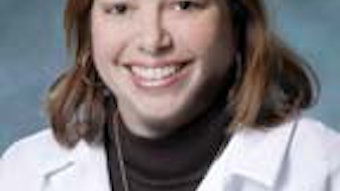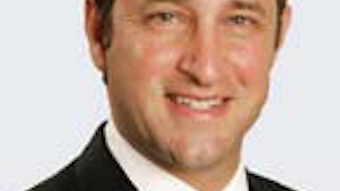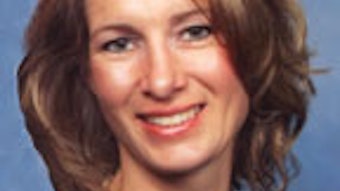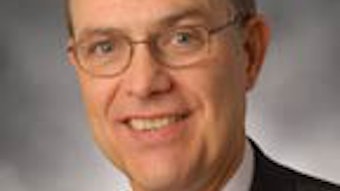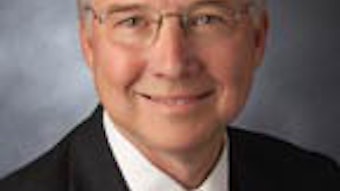Academy Piloting Patient Safety Portal
Rahul K. Shah, MD Co-chair, AAO-HNSF PSQI Committee George Washington University School of Medicine For the past two years, the Academy, under the direction of Jean Brereton, senior director of Research, Quality, and Health Policy, and with Peter Robertson, senior manager of Research and Quality Improvement, has been exploring the feasibility of having our membership anonymously report patient safety-related issues, such as errors, adverse events, and near misses. The concept behind this is similar to what the Federal Aviation Administration (FAA) does to keep track of near misses and similar events. The nonpunitive reporting system the FAA has is so robust that many consider it one of the reasons for that agency’s exemplary safety record. The federal designation as a patient safety organization as authorized by the Patient Safety and Quality Act of 2005 denotes certain protections to organizations in collecting such data and using this information in a nonpunitive manner. Our hope was that becoming a patient safety organization would be in the best interest of our members and their patients. However, after many months and extensive research into a number of options, including potentially partnering with an existing Patient Safety Organization, we have decided this is not the route to pursue. We need information on patient safety events to be able to take a macro-level view of the zones of risk in our practices and help aggregate our one-off occurrences into meaningful actionable data. The difficulty is that a problem experienced by one otolaryngologist in a specific region of the country may not even be known to another practitioner in a different practice region. The need to have information on these rare, but significant, events reach the broadest possible targeted audience is imperative. As such, the Academy, in conjunction with the Patient Safety Quality Improvement Committee, is piloting a patient safety portal where Academy members can securely, confidentially, and anonymously report an event. The reported error does not necessarily have to have resulted in an adverse event; reports can essentially reflect any safety concern that the Academy member has noted, including a near miss or other such error. Academy staff has gone to great lengths to ensure and corroborate the two most important aspects of a nonpunitive report system: confidentiality and anonymity. The initial step is to ensure users of the portal are Academy members. Once your membership is confirmed and you access the patient safety portal, your report immediately becomes anonymous. Indeed, we have run checks to ensure that no data are recorded, not even the IP address of the computer from which the report is submitted. As a final security check, as reports come in, they will be reviewed by a nonphysician Academy staff member to ensure that any report containing any type of identifying information is purged. Our hope is to create a place where Academy members can and should be able to report near misses, adverse events, and errors. The hope is that as our membership starts using this reporting tool, we will be able to rapidly identify macro trends that are becoming an issue. For example, if there are infrequent, but significant, issues associated with a particular device, the reporting system may be able to catch this. To be clear, the patient safety portal is not to be duplicative of existing reporting systems such as the U.S. Food & Drug Administration’s mandatory reporting system for device issues. Rather, it is to be complementary and immediately available and accessible for our Academy membership, with the ability to improve our practices and the safety for our patients and our specialty. We are currently piloting this with the Patient Safety and Quality Improvement Committee to discern if the portal asks the right questions that can lead to collection of actionable data. We hope to refine this portal soon and then begin opening this up to all members, so that we can identify opportunities for improvement of our systems of practice based on the aggregate data. We encourage members to write us with any topic of interest and we will try to research and discuss the issue. Members’ names are published only after they have been contacted directly by Academy staff and have given consent to the use of their names. Please email the Academy at qualityimprovement@entnet.org to engage us in a patient safety and quality discussion that is pertinent to your practice. Evidence-Based Guidelines Affecting Policy, Practice, and Stakeholders (E-GAPPS) Conference The 2012 E-GAPPS Conference is a two-day meeting co-sponsored by the Guidelines International Network North America (G-I-N NA) and the Section on Evidence-Based Health Care (SEBHC) of the New York Academy of Medicine. It will take place Monday, December 10, through Tuesday, December 11, in New York, NY. The E-GAPPS mission focuses on constructive dialogue and collaboration; best practices in guideline development, dissemination, and implementation; and perspectives, processes, values, and principles that influence healthcare policy. To register to attend, or to learn more about the confirmed plenary speakers, conference themes, or breakout sessions, visit http://www.nyam.org/events/2012/evidence-based-guidelines-conference.html.
Rahul K. Shah, MD
Co-chair, AAO-HNSF PSQI Committee
George Washington University School of Medicine
For the past two years, the Academy, under the direction of Jean Brereton, senior director of Research, Quality, and Health Policy, and with Peter Robertson, senior manager of Research and Quality Improvement, has been exploring the feasibility of having our membership anonymously report patient safety-related issues, such as errors, adverse events, and near misses. The concept behind this is similar to what the Federal Aviation Administration (FAA) does to keep track of near misses and similar events. The nonpunitive reporting system the FAA has is so robust that many consider it one of the reasons for that agency’s exemplary safety record.
The federal designation as a patient safety organization as authorized by the Patient Safety and Quality Act of 2005 denotes certain protections to organizations in collecting such data and using this information in a nonpunitive manner. Our hope was that becoming a patient safety organization would be in the best interest of our members and their patients. However, after many months and extensive research into a number of options, including potentially partnering with an existing Patient Safety Organization, we have decided this is not the route to pursue.
We need information on patient safety events to be able to take a macro-level view of the zones of risk in our practices and help aggregate our one-off occurrences into meaningful actionable data. The difficulty is that a problem experienced by one otolaryngologist in a specific region of the country may not even be known to another practitioner in a different practice region. The need to have information on these rare, but significant, events reach the broadest possible targeted audience is imperative.
As such, the Academy, in conjunction with the Patient Safety Quality Improvement Committee, is piloting a patient safety portal where Academy members can securely, confidentially, and anonymously report an event. The reported error does not necessarily have to have resulted in an adverse event; reports can essentially reflect any safety concern that the Academy member has noted, including a near miss or other such error. Academy staff has gone to great lengths to ensure and corroborate the two most important aspects of a nonpunitive report system: confidentiality and anonymity.
The initial step is to ensure users of the portal are Academy members. Once your membership is confirmed and you access the patient safety portal, your report immediately becomes anonymous. Indeed, we have run checks to ensure that no data are recorded, not even the IP address of the computer from which the report is submitted. As a final security check, as reports come in, they will be reviewed by a nonphysician Academy staff member to ensure that any report containing any type of identifying information is purged.
Our hope is to create a place where Academy members can and should be able to report near misses, adverse events, and errors. The hope is that as our membership starts using this reporting tool, we will be able to rapidly identify macro trends that are becoming an issue. For example, if there are infrequent, but significant, issues associated with a particular device, the reporting system may be able to catch this. To be clear, the patient safety portal is not to be duplicative of existing reporting systems such as the U.S. Food & Drug Administration’s mandatory reporting system for device issues. Rather, it is to be complementary and immediately available and accessible for our Academy membership, with the ability to improve our practices and the safety for our patients and our specialty.
We are currently piloting this with the Patient Safety and Quality Improvement Committee to discern if the portal asks the right questions that can lead to collection of actionable data. We hope to refine this portal soon and then begin opening this up to all members, so that we can identify opportunities for improvement of our systems of practice based on the aggregate data.
We encourage members to write us with any topic of interest and we will try to research and discuss the issue. Members’ names are published only after they have been contacted directly by Academy staff and have given consent to the use of their names. Please email the Academy at qualityimprovement@entnet.org to engage us in a patient safety and quality discussion that is pertinent to your practice.
Evidence-Based Guidelines Affecting Policy, Practice, and Stakeholders (E-GAPPS) Conference
The 2012 E-GAPPS Conference is a two-day meeting co-sponsored by the Guidelines International Network North America (G-I-N NA) and the Section on Evidence-Based Health Care (SEBHC) of the New York Academy of Medicine. It will take place Monday, December 10, through Tuesday, December 11, in New York, NY. The E-GAPPS mission focuses on constructive dialogue and collaboration; best practices in guideline development, dissemination, and implementation; and perspectives, processes, values, and principles that influence healthcare policy.
To register to attend, or to learn more about the confirmed plenary speakers, conference themes, or breakout sessions, visit http://www.nyam.org/events/2012/evidence-based-guidelines-conference.html.
